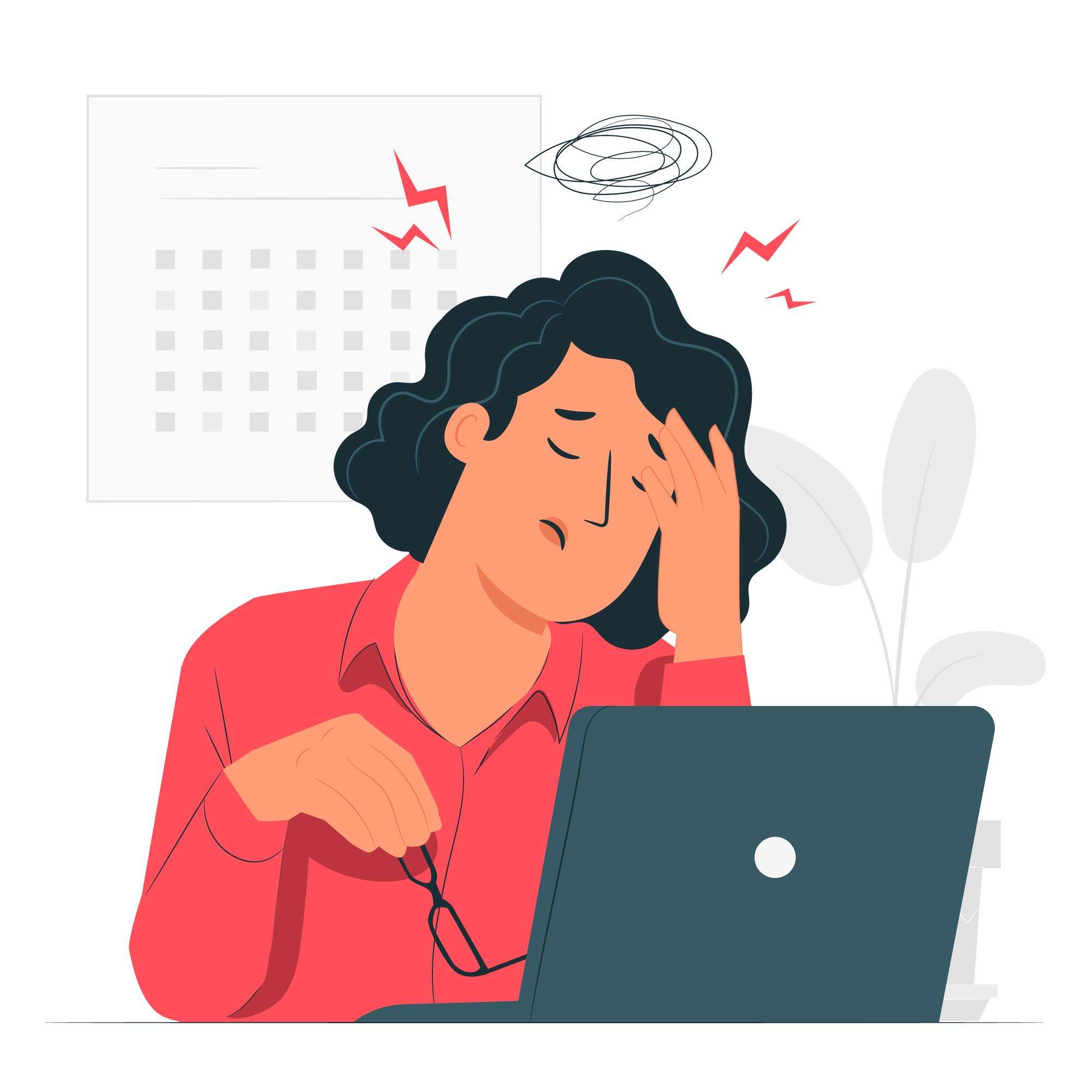Discover the causes of stress, recognize symptoms, and explore effective treatments. Discover simple ways to handle stress and feel better every day.
Table of Contents
Toggle
What is Stress?
Stress is essentially your body’s reaction to any demand or perceived danger. When faced with such situations, your body produces hormones such as adrenaline to ready you for either confrontation or escape—this response is commonly referred to as “fight-or-flight.” While this reaction is critical for survival in acute situations, frequent or intense activation can adversely affect your health. Medically speaking, stress can also be result of depression or increased cortisol levels.


Types of Stress
Stress is typically divided into three categories: acute, episodic acute, and chronic. Acute stress arises from immediate, short-lived challenges like unexpected delays, disagreements, or looming deadlines. Beneficial in moderation, it helps you navigate immediate issues effectively, but repeated episodes can cause problems.
People who routinely encounter acute stress are said to suffer from episodic acute stress. This form of stressing out is prevalent among individuals with high-pressure lifestyles, characterized by constant urgency and stress from multiple sources.
Chronic stress is persistent, stemming from prolonged issues such as financial difficulties, troubled relationships, or demanding careers. The relentless nature of chronic stress keeps the body in a perpetual alert state, paving the way for serious health issues including cardiovascular diseases, mental health disorders, and metabolic problems.
What are the Causes of Stress?
According to research, Stress triggers or ‘stressors’ can be external or internal. Common external stressors include job-related pressures, financial instability, and interpersonal conflicts. Internal stressors may involve health challenges, mental health or emotional disturbances. Understanding what triggers your stress is the first step toward effective management.
What are the Symptoms of Stress?
The manifestations of stress can be physical and psychological. Physically, it might present as headaches, muscle pain, fatigue, or sleep disturbances. Research says that emotionally, it can lead to anxiety, irritability, and depression. Behavioral signs include altered eating or sleeping patterns, social withdrawal, and substance use. Recognizing these symptoms early can help in managing stress proactively.
If you’re noticing any of these symptoms, don’t hesitate to reach out for support. Contact a professional psychologist today to start managing your stress effectively.

How Can You Prevent Stress?
To effectively prevent stress, it’s crucial to adopt a healthy lifestyle. Engaging in regular physical exercise releases endorphins, improving your mood and reducing physical stress responses. A balanced diet fuels your body, supporting stress management.
Effective time management techniques can prevent the feeling of being overwhelmed. Adequate sleep and relaxation practices like deep breathing, meditation, or yoga are essential for mental well-being. Maintaining a robust support network and indulging in enjoyable activities also play vital roles in stress prevention and overall emotional health.
By incorporating these strategies, you can better manage life’s pressures and improve your quality of life.
What are the Complications of Stress?
Physical Health Problems
Heart Complications:
Stress can lead to elevated blood pressure and a heightened risk of cardiac incidents.Blood Sugar Fluctuations:
Inefficient management of diabetes due to stress-related disruptions.Increased Weight:
Stress can trigger overeating, contributing to obesity.Gastrointestinal Distress:
Frequent stress may result in ongoing stomach ailments and the development of ulcers.
Mental Health Issues
Depression:
A continuous state of low mood and aversion to activity.Anxiety:
Excessive tension and worry that can disrupt everyday life.Sleep Disruption:
Chronic difficulties in achieving restful sleep.Panic Episodes:
Acute, overwhelming episodes of anxiety.
Behavioral Issues
- Addiction Risks: Heightened reliance on substances like alcohol, drugs, or tobacco.
- Eating Disorder Risks: Disordered eating patterns such as compulsive eating or severe food restriction.
- Social Isolation: A tendency to withdraw from social interactions.
- Workplace Challenges: A decline in work performance and satisfaction.
Facing any of these complications? Don’t wait—reach out to a psychologist today for professional support.

When to See a Doctor for Stress?
Severe or Prolonged Symptoms:
When symptoms drastically interfere with your day-to-day functioning.
Chronic Stress:
Stress that persists over an extended period.
Impaired Functioning:
Challenges in managing responsibilities at work, school, or home.
Harmful Coping Mechanisms:
Turning to harmful habits as a way to deal with struggles.
What are the Treatment Options for Stress?
Physical Activity:
Engage in regular exercise to help mitigate tension.
Balanced Nutrition:
Opt for nutritious meals that support overall well-being.
Sleep Practices:
Establish a consistent bedtime routine and minimize screen time before sleep.
Mindfulness and Relaxation:
Try adding simple habits like yoga, meditation, or deep breathing to your routine.
Therapeutic Support:
Consider counseling or therapy to develop effective stress management techniques.
Medicinal Support:
Consult with a healthcare provider about the potential for medication assistance.
Community Engagement:
Connect with others going through similar struggles by joining support groups.
Effective Time Management:
Improve your efficiency by organizing and prioritizing tasks.
Boundary Setting:
Learn to say no to avoid overcommitment and stress.
Enhancing Social Connections:
Regularly connect with supportive friends and family.
Taking steps to manage stress can significantly improve your quality of life and health. If stress becomes overwhelming, don’t hesitate to seek professional help.
Feeling overwhelmed by stress? Contact us today to schedule a session with a caring psychologist.
Conclusion
Stress is an innate reaction to life’s demands and pressures. When it is frequent or prolonged, the impact on health can be substantial. Recognizing and addressing the different facets of stress through proactive lifestyle choices and professional support is essential for maintaining health and achieving a balanced life. Prioritize your well-being and seek help when stress feels unmanageable.
If you are going through a tough time and need someone to talk to, we are here for you. Reach out to us for a heartfelt chat or a comforting call with one of our caring psychologists. You are not alone in this journey, we are always here for you.
